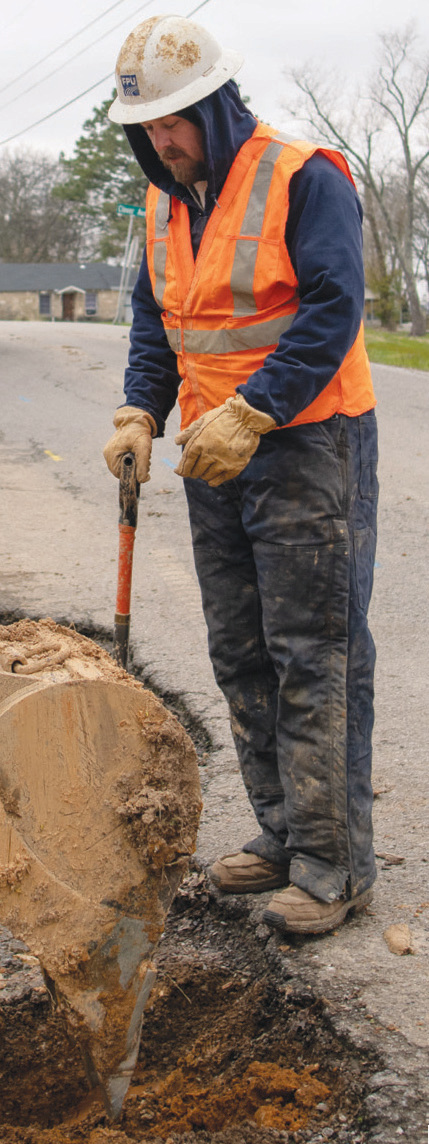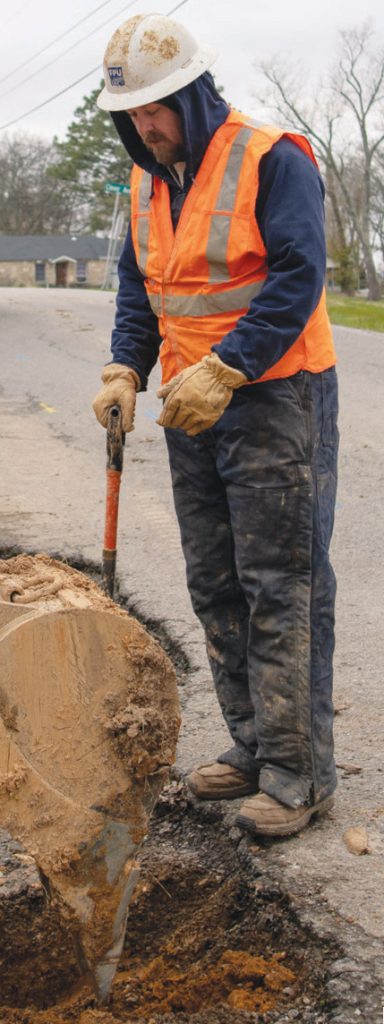Utility work can be a hazardous job. At Fayetteville Public Utilities, safety is our No. 1 priority.
One of the ways our crews stay safe is through the Personal Protective Equipment (PPE) they wear and use. Water, wastewater and natural gas personnel utilize an array of PPE similar but somewhat different than the equipment used by electric utility employees.
The majority of FPU’s water/ wastewater and natural gas personnel use standard PPE: orange cones and vests, “men working” signs, safety glasses, leather gloves, hearing protection and fire-resistant clothing. In certain situations, they also use specialty equipment like fire suits, atmospheric testers, shoring/sloping techniques, barricades for ditches deeper than 4 feet, tripod rescue devices and body harnesses.
When working in the underground utility world, no two situations are ever the same. Workers may encounter Class A Soil (clay) at a location in the morning and then have Class C Soil (sand) at a different location that evening. Each soil type requires different forms of PPE.
In the natural gas industry, a major requirement is knowing your explosive limits of blowing gas. Flammability limits and ignition sources are also important to these workers. Knowing the pressures that are being used in different areas helps them determine their proper form of PPE.
Water and wastewater plant employees interact with many different treatment chemicals, each with unique properties. Employees must be familiar with each chemical’s Safety Data Sheet (SDS) in order to be able to respond correctly to spills, releases, and exposures. They are sometimes required to use full-face respirators fitted with the appropriate cartridges for the chemicals on hand, self-contained breathing apparatuses (SCBA), proper gloves and Tyvek suits, among other pieces of PPE. Some of these chemicals can be very dangerous, so the proper handling of the chemicals is very important in regards to safety of employees as well as the safety of the surrounding residents.

FPU’s employees receive extensive training and continually work to make sure that all safety gear is kept up-to-date. Employees are not only working in potentially hazardous conditions but also using their training to choose the PPE required for each situation.
Next time you see utility workers, thank them for the jobs they do in different, sometimes dangerous, situations each day.



